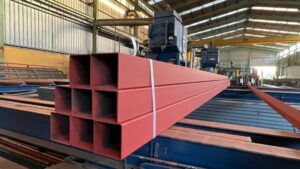Dutch semiconductor equipment manufacturer ASML will invest $200 million to expand operations at its facility in Wilton, Connecticut, as it looks to support growing chip production capacity in the US, the company said May 31.
“The semiconductor industry’s growth continues apace,” CEO Peter Wennink said in a statement. “To meet projected demand in the years ahead, ASML is investing in infrastructure and people. Our Wilton office is a good example of that investment and one of several sites in the US that are fundamental to ASML’s success.”
At Wilton, ASML designs, engineers, develops, and produces the machinery used by manufacturers to create advanced semiconductor computer chips.
ASML’s investment comes as Congress continues to debate the passage of the Bipartisan Innovation Act, which includes $52 billion of investment for the research, development, and production of semiconductors in the US.
“Since day one, the Biden administration has pledged to revitalize our domestic manufacturing economy and keep our country safe,” Deputy Secretary of Commerce Don Graves said in the statement. “Achieving these goals starts and ends with advanced semiconductors made right here in the United States.”
“ASML is a valued member of the coalition of private sector companies from around the globe who are choosing the United States as their home for semiconductors, and for that, we are immensely grateful,” he added. “We need to build on this momentum by getting the Bipartisan Innovation Act to the president’s desk for a signature because it is critical to our economic and national security.”
The House of Representatives and Senate have each already passed their respective versions of the legislation, which includes proposed funding for US semiconductor manufacturing, but progress on the package has stalled in recent months as the two chambers have worked to draft a final bill that reconciles differences between their respective versions.
In anticipation of the proposed funding, Intel said in January it would invest more than $20 billion to build two semiconductor chip factories near Columbus, Ohio, with production expected to start in 2025.
Multiple industries across the world have been affected by the global semiconductor shortage that began in early 2021 as a result of changes to industrial patterns during the onset of the coronavirus pandemic. Most notably, the chip shortage has caused automotive manufacturers to cut production amid surging demand.
— Nick Lazzaro






